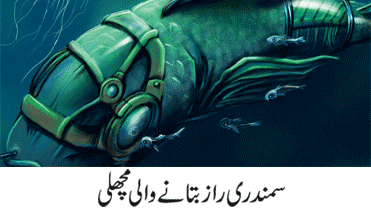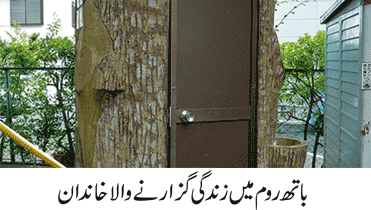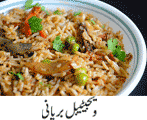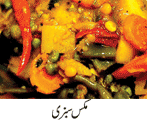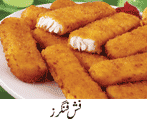Hadith About Salamسلام میں پہل کرنے کے بارے میں احادیث
Hadith About Salam is One Of The Good Qualities of Islam 1. سلام کرنا دین اسلام کی خوبیوں میں سے ہے
Narrated 'Abdullah bin 'Amr: A man asked the Prophet , What sort of deeds or (what qualities of) Islam are good? The Prophet replied, 'To feed (the poor) and greet those whom you know and those whom you do not Know.
Book: Sahih Bukhari, Chapter: Belief (Faith), Hadees No. 12Narrated 'Abdullah bin 'Amr: A person asked Allah's Apostle . What (sort of) deeds in or (what qualities of) Islam are good? He replied, To feed (the poor) and greet those whom you know and those whom you don't know.
Book: Sahih Bukhari, Chapter: Belief (Faith), Hadees No. 28ہم سے حدیث بیان کی عمرو بن خالد نے، ان کو لیث نے، وہ روایت کرتے ہیں یزید سے، وہ ابوالخیر سے، وہ عبداللہ بن عمرو بن عاص رضی اللہ عنہما سے کہ ایک دن ایک آدمی نے نبی کریم صلی اللہ علیہ وسلم سے پوچھا کہ کون سا اسلام بہتر ہے؟ فرمایا کہ تم کھانا کھلاؤ، اور جس کو پہچانو اس کو بھی اور جس کو نہ پہچانو اس کو بھی، الغرض سب کو سلام کرو۔
Book: Sahih Bukhari, Chapter: Belief (Faith), Hadees No. 12ہم سے قتیبہ نے بیان کیا، انہوں نے کہا ہم سے لیث نے بیان کیا، انہوں نے یزید بن ابی حبیب سے، انہوں نے ابوالخیر سے، انہوں نے عبداللہ بن عمرو رضی اللہ عنہما سے کہ ایک آدمی نے رسول اللہ صلی اللہ علیہ وسلم سے پوچھا کون سا اسلام بہتر ہے؟ آپ صلی اللہ علیہ وسلم نے فرمایا کہ تو کھانا کھلائے اور ہر شخص کو سلام کرے خواہ اس کو تو جانتا ہو یا نہ جانتا ہو۔
Book: Sahih Bukhari, Chapter: Belief (Faith), Hadees No. 28حَدَّثَنَا عَمْرُو بْنُ خَالِدٍ ، قَالَ : حَدَّثَنَا اللَّيْثُ، عَنْ، يَزِيدَ، عَنْ أَبِي الْخَيْرِ ، عَنْ عَبْدِ اللَّهِ بْنِ عَمْرٍو رَضِيَ اللَّهُ عَنْهُمَا ، أَنَّ رَجُلًا سَأَلَا النَّبِيَّ صَلَّى اللَّهُ عَلَيْهِ وَسَلَّمَ ، أَيُّ الْإِسْلَامِ خَيْرٌ ؟ قَالَ : تُطْعِمُ الطَّعَامَ ، وَتَقْرَأُ السَّلَامَ عَلَى مَنْ عَرَفْتَ وَمَنْ لَمْ تَعْرِفْ .
Book: Sahih Bukhari, Chapter: Belief (Faith), Hadees No. 12حَدَّثَنَا قُتَيْبَةُ ، قَالَ: حَدَّثَنَا اللَّيْثُ ، عَنْ يَزِيدَ بْنِ أَبِي حَبِيبٍ ، عَنْ أَبِي الْخَيْرِ ، عَنْ عَبْدِ اللَّهِ بْنِ عَمْرٍو ، أَنَّ رَجُلًا سَأَل رَسُولَ اللَّهِ صَلَّى اللَّهُ عَلَيْهِ وَسَلَّمَ ، أَيُّ الْإِسْلَامِ خَيْرٌ ؟ قَالَ : تُطْعِمُ الطَّعَامَ ، وَتَقْرَأُ السَّلَامَ عَلَى مَنْ عَرَفْتَ وَمَنْ لَمْ تَعْرِفْ .
Book: Sahih Bukhari, Chapter: Belief (Faith), Hadees No. 28Hadith About Returning Salam/Greeting 2. سلام کا جواب دینے کے بارے میں
Narrated Al-Bara' bin `Azib: Allah's Apostle ordered us to do seven things and forbade us to do other seven. He ordered us: to follow the funeral procession. to visit the sick, to accept invitations, to help the oppressed, to fulfill the oaths, to return the greeting and to reply to the sneezer: (saying, May Allah be merciful on you, provided the sneezer says, All the praises are for Allah, ). He forbade us to use silver utensils and dishes and to wear golden rings, silk (clothes), Dibaj (pure silk cloth), Qissi and Istabraq (two kinds of silk cloths).
Book: Sahih Bukhari, Chapter: Al-Janaiz (Funerals), Hadees No. 1239ہم سے ابوالولید نے بیان کیا، کہا کہ ہم سے شعبہ نے بیان کیا، ان سے اشعث بن ابی الثعثاء نے، انہوں نے کہا کہ میں نے معاویہ بن سوید مقرن سے سنا، وہ براء بن عازب رضی اللہ عنہ سے نقل کرتے تھے کہ ہمیں نبی کریم صلی اللہ علیہ وسلم نے سات کاموں کا حکم دیا اور سات کاموں سے روکا۔ ہمیں آپ صلی اللہ علیہ وسلم نے حکم دیا تھا جنازہ کے ساتھ چلنے، مریض کی مزاج پرسی، دعوت قبول کرنے، مظلوم کی مدد کرنے کا، قسم پوری کرنے کا، سلام کا جواب دینے کا، چھینک پر «يرحمک الله» کہنے کا اور آپ صلی اللہ علیہ وسلم نے ہمیں منع کیا تھا چاندی کے برتن ( استعمال میں لانے ) سے، سونے کی انگوٹھی پہننے سے، ریشم اور دیباج ( کے کپڑوں کے پہننے ) سے، قسی سے، استبرق سے۔
Book: Sahih Bukhari, Chapter: Al-Janaiz (Funerals), Hadees No. 1239حَدَّثَنَا أَبُو الْوَلِيدِ ، حَدَّثَنَا شُعْبَةُ ، عَنْ الْأَشْعَثِ , قَالَ : سَمِعْتُ مُعَاوِيَةَ بْنَ سُوَيْدِ بْنِ مُقَرِّنٍ ، عَنْ الْبَرَاءِ رَضِيَ اللَّهُ عَنْهُ , قَالَ : أَمَرَنَا النَّبِيُّ صَلَّى اللَّهُ عَلَيْهِ وَسَلَّمَ بِسَبْعٍ وَنَهَانَا عَنْ سَبْعٍ ، أَمَرَنَا : بِاتِّبَاعِ الْجَنَائِزِ , وَعِيَادَةِ الْمَرِيضِ , وَإِجَابَةِ الدَّاعِي , وَنَصْرِ الْمَظْلُومِ , وَإِبْرَارِ الْقَسَمِ , وَرَدِّ السَّلَامِ , وَتَشْمِيتِ الْعَاطِسِ ، وَنَهَانَا عَنْ : آنِيَةِ الْفِضَّةِ , وَخَاتَمِ الذَّهَبِ , وَالْحَرِيرِ , وَالدِّيبَاجِ , وَالْقَسِّيِّ , وَالْإِسْتَبْرَقِ.
Book: Sahih Bukhari, Chapter: Al-Janaiz (Funerals), Hadees No. 1239When people meet, they greet one another saying, “Good Morning”, “Good Noon”, “Good Afternoon”, “Good Evening”, or “Good Night” depending on the time of the day. Sometimes, they use the words “Hello!” or “Hi!” while meeting with the individuals whom they enjoy a level of frankness with. As you can see, none of these greetings expresses a wish or a prayer.
On the other hand, Islamic greeting is a sort of Dua or prayer. When a Muslim meets another Muslim, he says, “As-Salaam o Alaikum” (السلام علیکم) which means “Peace be upon you”. It means, while greeting others in the Islamic way, you have to pray even for those whom you don’t know and meet for the first time. It will surely send the message of love and you would most probably be reciprocated with the same.
Holy Prophet Hazrat Muhammad (ﷺ) repeatedly stressed upon the Muslims to say “Salam” to all whether you know them or not.
Once when asked about what deeds are good in Islam, Allah’s Rasool (May peace and blessings of Allah be upon Him) said, “To feed (the poor) and greet those whom you know and those whom you do not Know.” (Hadees No. 12, Sahih Bukhari, Chapter: Belief (Faith), Sahih Bukhari)
Similarly, there are Ahadees about returning Salaam/greetings. Once Allah’s Apostle ordered the Sahabah (May Allah be pleased with them) to do seven things: (1) to follow the funeral procession; (2) to visit the sick; (3) to accept invitations; (4) to help the oppressed; (5) to fulfill the oaths; (6) to return the greeting; and (7) to reply to the sneezer.





